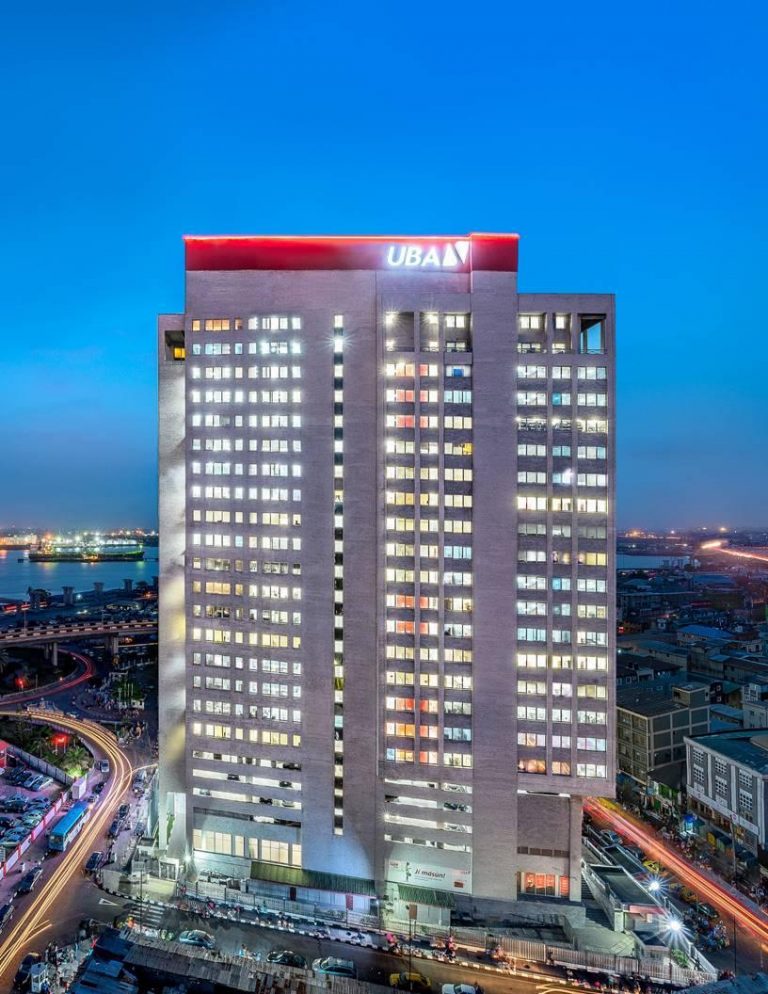Directors of the United Bank for Africa Plc, last week presented its audited financials for the year ended December 31, 2022, with profit after tax growing by a robust N51.599bn, or 43.48% from N118.678bn in the corresponding period of 2021 to N170.277bn last year, as income tax expense dropped marginally to N30.599bn from N34.395bn. The Nigerian arm accounted for N124.064bn or 72.86% of the net profit, a significant improvement over previous year’s N52.977bn; with the rest of Africa and globe contributing N72.216bn, up from N66.711bn; and N21.126bn, up from N8.587bn respectively.
Net profit translated to N4.84 earnings per share, up from N3.39 each in the preceding year-end.
The growth was boosted by the impressive improvements in fee and commission income, net trading and foreign exchange income, and other operating income, which were enough to mitigate the increases in other operating expenses, interest expense, impairment charge for credit losses on loans and net impairment write back on other financial assets.
The directors have recommended a final dividend of 90 kobo, up from the previous 80 kobo for consideration and approval by the shareholders at the next annual general meeting, in addition to the 20 kobo interim dividend earlier paid, bringing total dividend for the year to N1.10, or a dividend ratio of 29%, and a yield of 10.7%. The final dividend is payable on Thursday, April 27, 2023, to shareholders whose names appear on the register of members as of Friday, April 14.
According the financials presented to the Nigerian Exchange Limited, gross earnings amounted to N852.863bn, from N658.291bn in the previous year with the group’s Nigerian business contributing the lion’s share of N543.748bn, up from N372.779bn a year earlier; followed by the rest of Africa with N327.029bn, up from N275.497bn; while the rest of the world added N48.219bn from N23.912bn. Interest income stood at N557.152bn, compared to the previous N474.262bn; while interest expenses rose from N157.551bn to N177.663bn, boosted by the N130.312bn paid on customer deposits, up from N104.039bn a year earlier; leaving a net interest income of N379.489bn, compared to the previous year’s N316.711bn.
Impairment charge for credit losses on loans leaped from N9.851bn to N19.671bn, after impairment for credit losses soared to N23.348bn from N9.901bn, while write-off on loans and receivables stood at N4.874bn from N4.653bn; the effects of which was mitigated by recoveries on allowances for credit loss which increased from N5.348bn to N8.55bn. The value of impairment charge on investment securities soared from N784m to N17.979bn, including the N17.28bn impairment loss attributable to Group’s exposure in impairment charge on investment securities on the Ghana investment market, “which significantly lost its value due to Domestic Debt Exchange Programme (DDEP) launched by Government of Ghana” on December 5, 2022 in response to the Government’s default “in servicing its debts when it suspended payments on most of its external debts and to ensure debt sustainability aimed at securing $3b IMF economic support. Impairment charge on off-balance sheet items dropped to N1.232bn from N3.52bn; and impairment charge on other assets stood at N3.086bn, compared to the previous year’s N1.292bn reversal, resulting in a net impairment write back on other financial assets jumped from N3.012bn to N22.297bn. This left a net interest income after impairment on financial instruments of N337.521bn, against the prior year’s N303.848bn. There was a N51.873bn or 32.69% jump in fee and commission income from N158.648bn to N210.521bn, boosted by the N78.946bn from electronic banking income (from income on transactions processed via electronic channels like ATM, PoS, mobile banking, as well as credit and debit cards), up from N64.595bn; followed by N37.526bn from trade transactions income, which improved from N19.502bn. Fee and commission expense stood at N82.278bn from N57.746bn, the bulk of which was the N61.258bn from electronic banking expenses, which rose from N46.913bn; resulting in net and commission income of N128.243bn from N100.902bn.
Net trading and foreign exchange income soared from N16.385bn to N72.15bn, the lion’s share of which was the N39.873bn from forex trading, up from N19.457bn, just net fair value on derivatives stood at N6.509bn, compared to the previous year’s N19.398bn loss.
Other operating income improved to N13.04bn from N8.996bn; employee benefit expenses rose to N113.988bn from N93.244bn; depreciation and amortization amounted to N26.218bn from N22.7bn, leaving profit before income tax at N200.876bn, up from N153.073bn.
A further breakdown of the financial showed that revenue was driven primarily by the group’s retail and commercial business segment which accounted for N392.005bn, but a distant third in terms of net profit with N30.71bn, compared to previous year’s N241.991bn and N16.465bn respectively; followed by N298.693bn from the corporate business, that ranked number one by PAT at N91.705bn, as against N292.797bn and N71.89bn in the 2021 financial year; while treasury and financial markets segment contributed N162.165bn and N47.861bn to revenue and net profit from N123.503bn and N30.323bn respectively at the end of 2021.
On the balance sheet, total assets grew to N10.857tr from N8.541tr, driven by customer loans and advances of N3.136tr, up from N2.68tr; just as total liabilities improved from N7.736tr to N9.935tr comprising mainly the N7.824tr of customer deposits, which increased from N6.369tr in the previous year. This resulted in shareholders’ funds of N922.104bn from N804.807bn.
Trending Today
Menu








